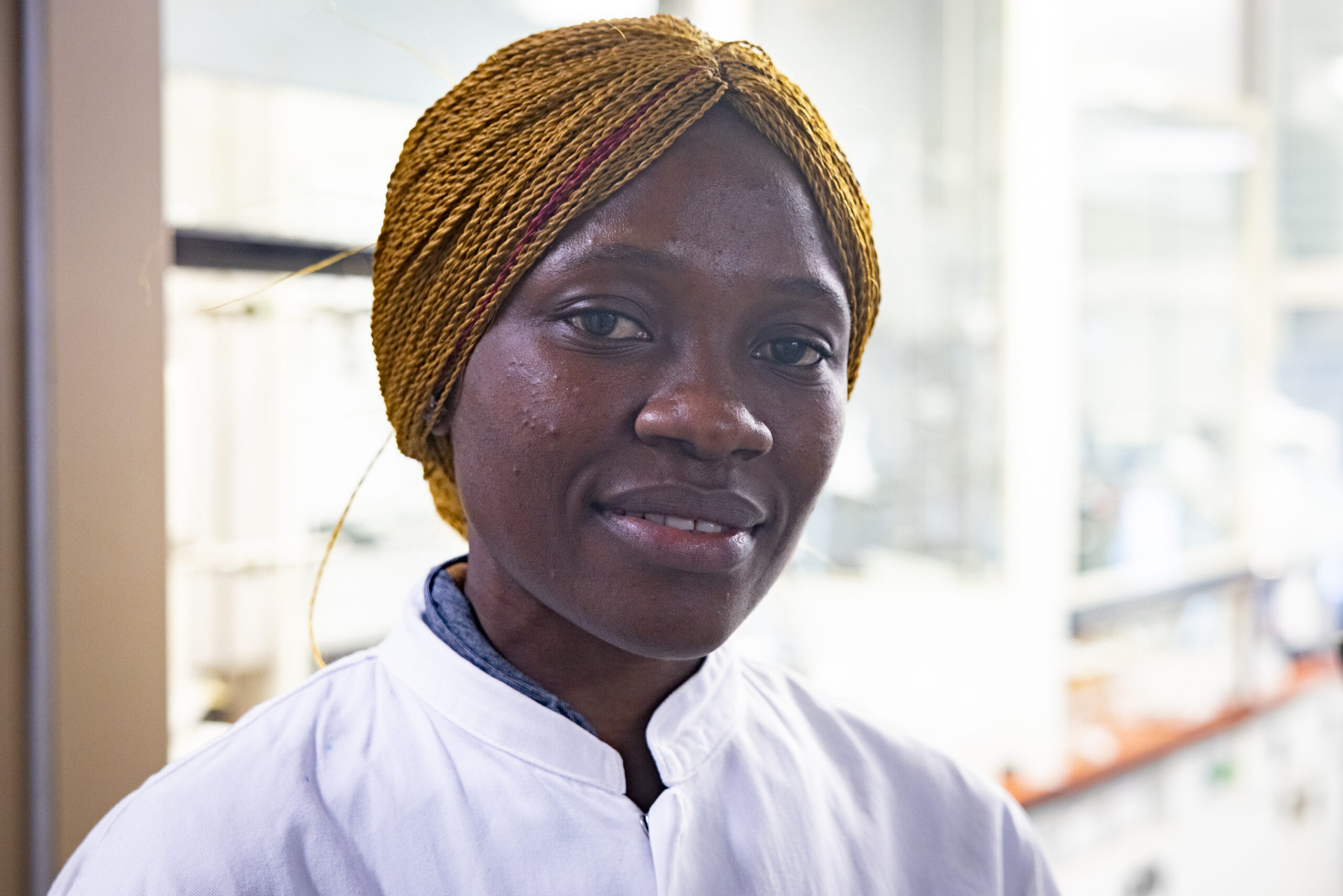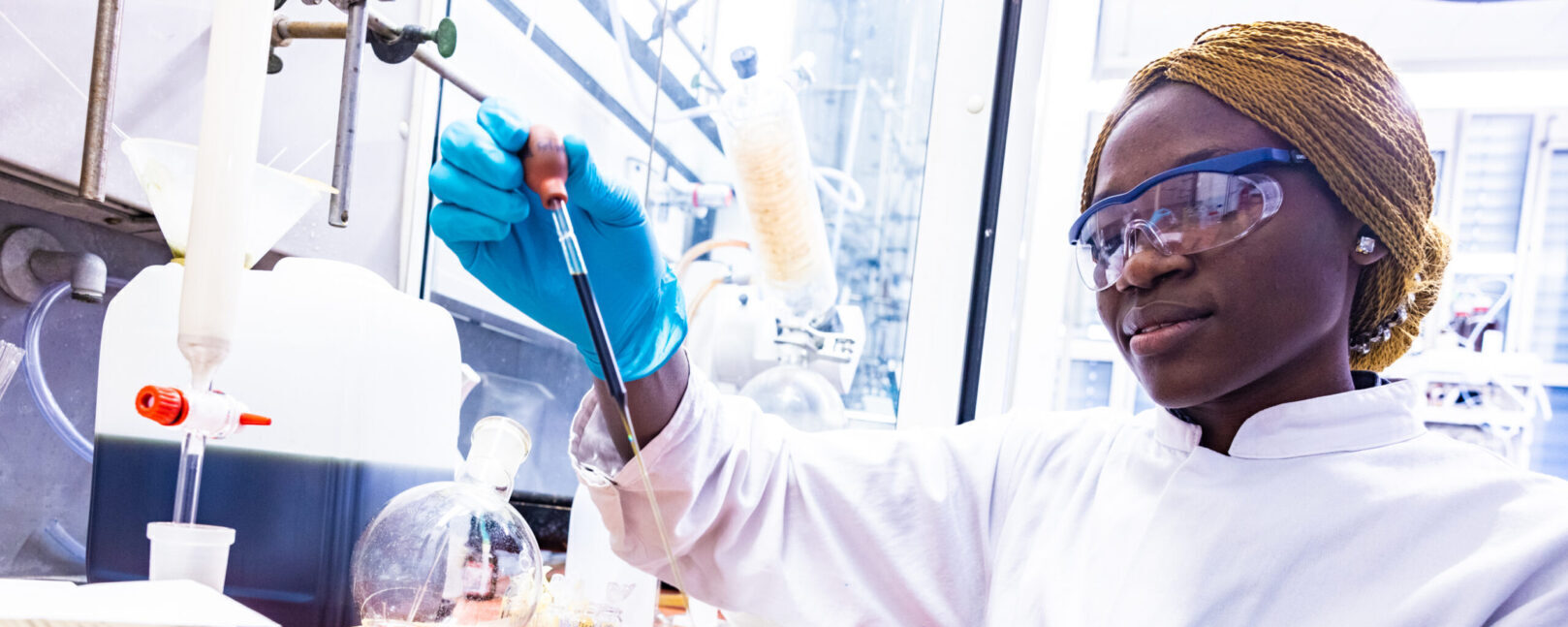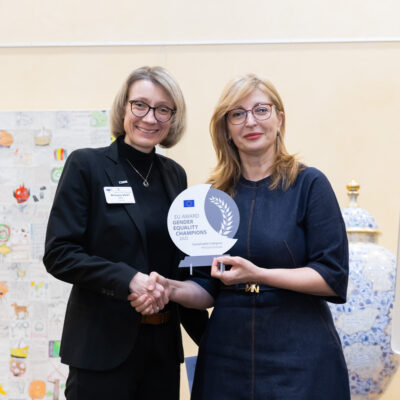Whether in engineering or medicine: Looking at nature to make advancements with new technology is an integral part of scientific research. In order to improve medical care in developing countries, Vanessa Charnele Tsafack of the University of Dschang does exactly that. The chemist and doctoral candidate conducts her research on the antimicrobial properties of plants native to West-African Cameroon with her team at Bielefeld University – made possible through the YaBiNaPa Graduate School.
“Growing up in rural Western Cameroon, I witnessed malaria, lower respiratory infections and even tuberculosis as still common illnesses. I wanted to contribute to solving the problems posed by infectious diseases and did my bachelor’s and master’s degrees in chemistry at the University of Dschang, Cameroon. The university has its roots in agricultural training schools in the city which, incidentally, date back to German colonial rule in the region. Many people suffer from infectious diseases globally, but in particular in developing countries, which in turn hinders their economic development. However, despite the development of new synthetic drugs, we continue to observe resistances developed by existing pathogenic strains. And those can affect everybody, as the current unprecedented global health crisis shows. There is still no cure for Covid-19, which shows the limits of our healthcare system and the need to find new therapeutic agents. Here, natural products are a promising source of new drugs.

© Universität Bielefeld/M.-D. Müller
I am especially interested in the antibacterial properties of plants that are used to treat infectious diseases such as cholera, pneumonia, and tuberculosis. In the research for my Ph.D. project, I am trying to build on ancient knowledge that has been around for thousands of years with the possibilities provided by modern technology. Plants such as Bridelia micrantha, or coastal golden leaf, have been used for millennia to treat those diseases. This adds an ethnobotanical dimension to my research, as I first need to choose the plants based on their previous use. Then I need to find out which substance is responsible for the antibacterial capacities of the plants.
Here at the laboratory of Bielefeld University, we are using chemical techniques to isolate and characterize different substance compounds from the plants Bridelia micrantha and Bersana abyssinica, both trees native to Sub-Saharan Africa. After extracting the collected plant material, we use chromatographic techniques for isolation. Chromatography is a separation technique based on the affinities of different substances to be retained on a surface. In a ‘mobile phase’, the extracts are dissolved, before being separated in a ‘stationary phase’ into different compounds. That is due to different substances traveling at different velocities, comparable to different objects floating on a river traveling at different speeds, depending on size and density. After the separation, we test the compounds for antibacterial activities. Different substances within these plants have the potential to treat different diseases.
It is my first time in Germany and, of course, I love the challenge of making new experiences. Being able to do this work here in Bielefeld with my fellow YaBiNaPa researchers is great. While we have some equipment in Dschang and Yaoundé, there is just more of it here and the binational exchange between the Cameroonian team and Bielefeld University works well. Everybody is very kind and sociable. Compared to cities in Cameroon, Bielefeld is of course very clean and very quiet – it really contributes to my own well-being. If another opportunity arises to come here and continue my research, I will take it immediately. After completing my Ph.D., I want to keep researching in order to help solve the health problems caused by other bacterial strains with plant-based medicine. There is a lot to be done.”
Captured by: Stephan Kreher
When people in Cameroon suffer from malaria and other parasitic infectious diseases, they often cannot afford treatment – the imported synthetic medicines cost a lot of money. The graduate school YaBiNaPA of Bielefeld University and the University Yaoundé I in Cameroon aims to remedy this. research_tv presents the project.





